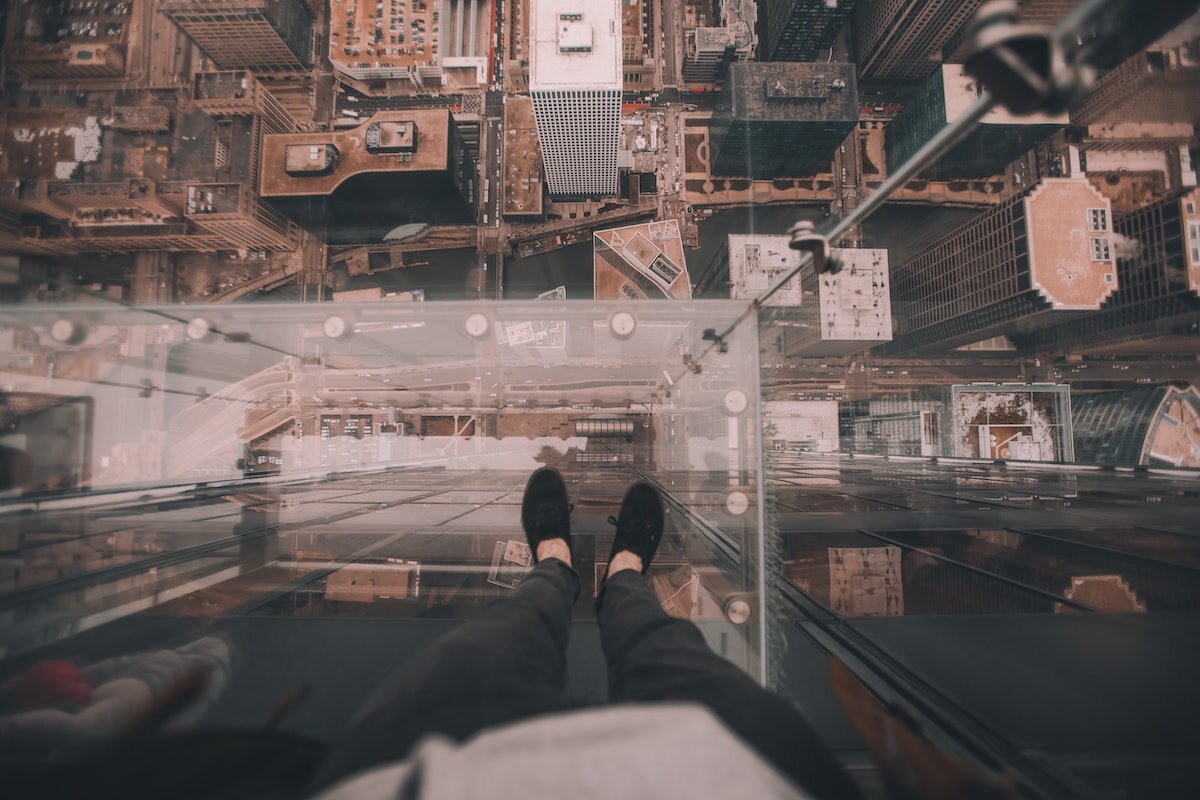How I Face Fear and Slam Stress
In the 80's I was a Yuppie (young upwardly mobile professional) - a time when hair was big, shoulders broad and bad ideas were plentiful.
I started my career with a large international auction house and stress went with the job. After a couple of years I was asked to take an auction.
As part of my training I had some practice sessions in front of colleagues and was then let loose on a public auction standing up front with a large audience of experienced buyers and under the scrutiny of senior colleagues.
Waiting to begin I started to sweat, tremble and feel nauseous. I hadn't slept well the night before and was already feeling exhausted. Anywhere else would have been better than there.
I asked myself why I had agreed to this crazy idea. Pride, expectation and a desire to fulfil a professional ambition had got me there and now it was time to go for it and be counted.
As I took my place the adrenaline compensated for the bad night's sleep and over the next two hours I attempted to sell around 200 lots of books and literature.
There was a sense of power as I called out the invitation to the audience to bid higher and they responded.
After 20 minutes I started to relax and enjoy the process. Soon I was looking people in the eye and with a smile or raised eyebrow I could encourage people to raise their hand again.
What had started out as a terrifying prospect turned into an enjoyable experience when I got on top of the fear.
Turning fear into something positive
Harnessing those very strong feelings and flipping them from terror to pleasure taught me how to approach moments which instinctively I would react against.
The physiological difference between fear and excitement is negligible – it's our interpretation which makes the difference.
When we analyse what we're frightened of and follow it right back to the root we'll find that it's ultimately fear of death, fear of the unknown experience of death, which is the 'driver', the catalyst for this strongest of emotions.
This is an instance of the 'small self' being in control.
We've allowed ourselves to view our life through a restricted perspective - that we, and we are alone, are the most important thing, and everything is about us.
There's a fear of loss of control which means we're no longer able to determine the outcome, and we always want the outcome to be with us alive and able to tell the story.
How to reduce incoming stress quickly and efficiently
The same applies to stress.
I've leant that when we get stressed it's our inability to deal with the incoming pressure which pushes us into a state of raised alertness.
The same incident can be perceived as stressful by some people and not by others.
Standing back and taking a broader perspective shows us that what we perceive to be overwhelming is part of a bigger picture. By distancing ourselves from the immediate visceral experience we can reduce the mental and physical impact and keep what frightens us in place.
When we take time out to be still and turn our attention inwards we have the opportunity to reconnect with our innate wisdom and intuition.
I have been meditating for decades and found that taking 20 minutes every day to disengage from the noisy interface has helped me negotiate a busy life.
As a regular guy, who has been round the track a few times and encountered my fair share of bumps and twists and turns, I've managed to reduce incoming stress so that when it does get in it doesn't stay around for long. It's quickly and efficiently cleared out.
Meditation to reduce stress
When we meditate we're connecting with nature's Intelligence and are no longer immersed in our small selves - we're witnessing ourselves as something much bigger, something which is an expression of full consciousness, what we call the ‘big Self’.
Meditation has helped me process stress quickly and efficiently. People often ask "If you have meditated all this time, surely you don't get stressed?". As a meditator, I've managed to reduce incoming stress so that it is dealt with quickly and efficiently. This helps me keep centred and grounded, sleep well and have plenty of energy.
Fear is based on the unknown and the possibility of death and when we recognise this and meditate with the understanding that death is inevitable, (after all there is a 100% success rate), and that it's the end of our body life, our small self existence, we relax and become fearless because we know our big Self, our field of Consciousness, is bigger and more fulfilling than our small self and will certainly outlast it.
You can experience a huge range of benefits as a result of regular meditation. If you have always wanted to find out more about meditation, and perhaps Vedic Meditation in particular, come along to one of our free introductory talks currently held online, observing social distancing measures.

